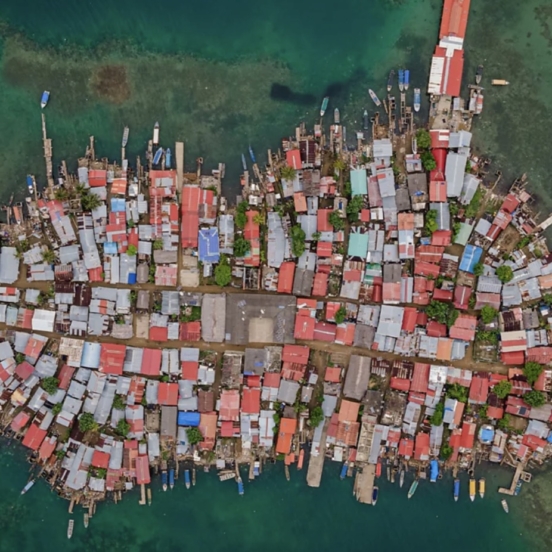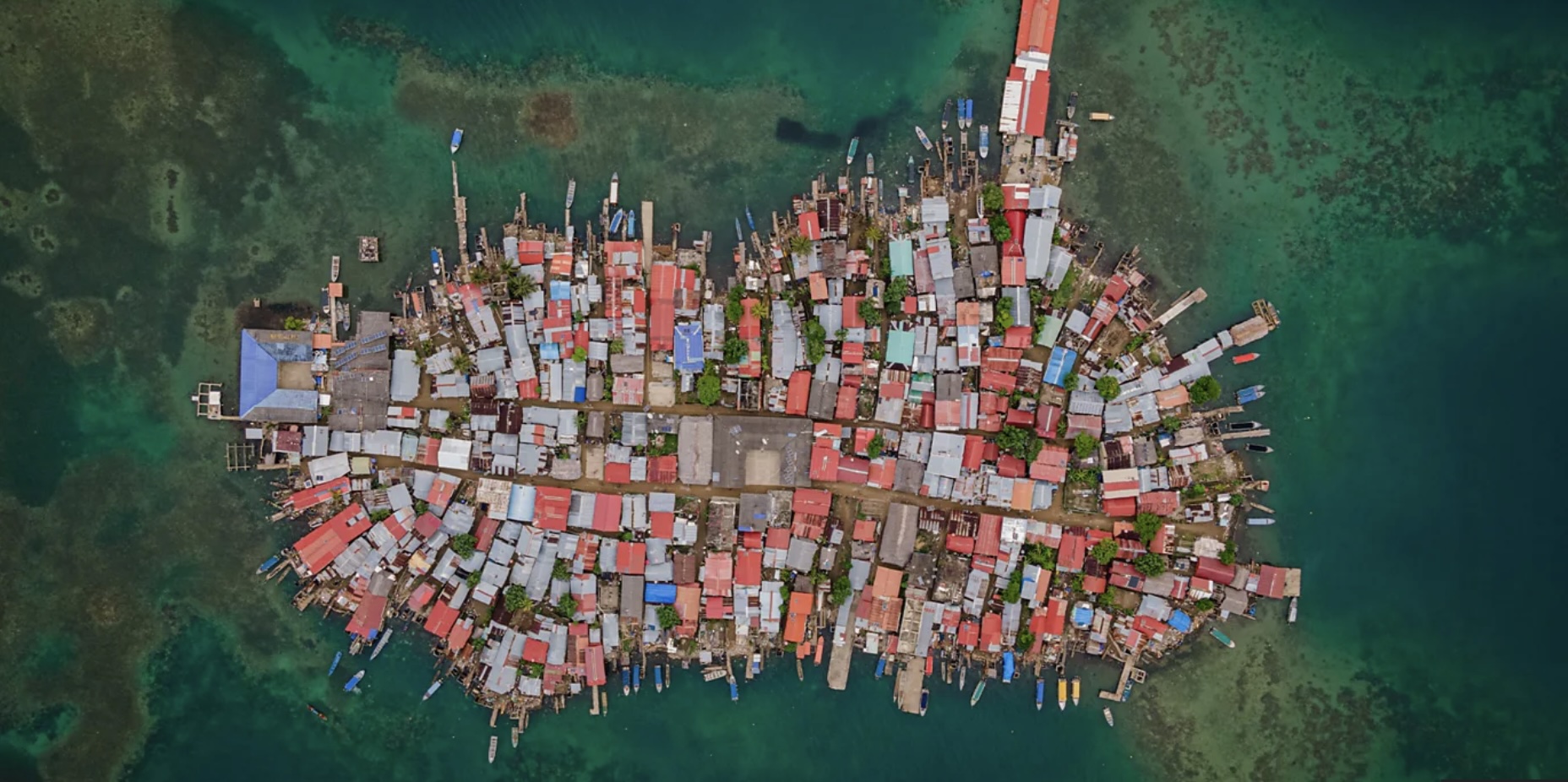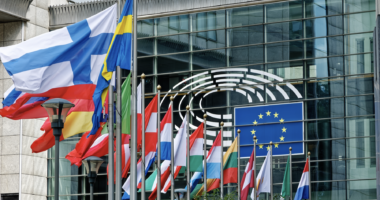Climate, Health and Equity Brief
Scarcity, sea level rise and raw sewage
June 10, 2024

The Climate, Health & Equity Brief is GMMB’s take on the latest news on the current impacts of climate change. If you haven’t subscribed yet, you can do so by clicking here.
Hot Topic: Water woes. Water covers more than 70% of Earth’s surface and is considered the elixir of life. Yet as the news has demonstrated with intensity this week, the changing climate is taking a wide-ranging toll on water and its impacts on humanity.
First is water access. In Mexico City, failing infrastructure and three consecutive years of excessive heat and low rainfall have hobbled the city’s Cutzamala water system, reducing water supply for more than a quarter of the city’s 22 million residents to a record-low 28% capacity. Experts say that without sufficient rainfall, the system could run dry as soon as June 26.
Tragically, Mexico is not alone. Around the globe, 25 countries housing one-quarter of the global population face “extremely high water stress,” according to the World Resources Institute. Within those, major cities as geographically diverse as Delhi, Bogota, Johannesburg, Cairo and Beijing face high risk driven by climate change and poor infrastructure—the latter requiring massive, costly overhauls that are more urgent than ever to adapt to the new climate reality.
Next is hydropower. Lower-than-normal winter precipitation in Canada hobbled its hydroelectric production, requiring the government to import more of its electricity from the U.S. in February and March and further concerning experts that climate-fueled rainfall changes pose long-term risks to grid reliability and energy security in North America. Hydropower is the world’s largest renewable source of electricity, and it relies on ample, free-flowing rivers to function. This, too, is an issue with global implications, as droughts, higher evaporation and lower precipitation strain hydropower operations on six of the world’s seven continents.
Next are the wide-ranging—and sometimes surprising—impacts of sea level rise. In just one example of erosion displacement, Indigenous island communities off the coast of Panama are beginning to permanently evacuate the islands they call home. Experts say more than 2% of Panama’s coastal territory will likely be lost in less than two decades, requiring $1.2 billion to relocate 38,000 inhabitants who will lose their homes.
Along the Southern U.S. Coast, rapidly rising seas and intensifying storms are raising the water table and threatening to erode millions of septic tanks, spill raw sewage into soil and groundwater and pollute nearby bodies of water. In Miami, homeowners are already facing costly repairs as fetid waters fill yards and streets and increase the risk of gastrointestinal diseases and other health hazards.
Ocean heating is another topic entirely, and one that will continue to generate troubling outcomes. Given this week’s news that Earth’s warming rate reached an all-time high in 2023 and that 92% of that heat was directly caused by human activity, it should be more obvious than ever that until humanity takes the steps necessary to protect itself, the consequences will only continue to intensify.
Human Health
Mexico City residents are rationing water as heat, low rainfall and poor infrastructure have converged to leave the city’s Cutzamala water system at just 28% capacity and expected to run dry by June 26 without sufficient rainfall. (The Washington Post)
Around the world, 12 major cities are at risk of running out of water, with climate-fueled drought and poor water management combining to threaten water resources for more than 130 million people. (Business Insider)
A record heat wave has seized India, with daytime highs around 120℉ and nighttime lows around 90℉, leading to wildfires and severe water shortages and causing more than 70 deaths. (The Washington Post, Hindustan Times)
A new study of more than half of U.S. births between 1993 and 2017 confirmed that early-term and preterm birth rates increase during heat waves. (Stat)
Rising sea levels and intensifying storms are threatening to erode millions of septic systems along America’s southern coast, turning them into “ticking time bombs” likely to release raw sewage, contaminate groundwater and threaten public health without massive and costly intervention. (The Washington Post)
A survey of 1,000 kids aged 11-16 by London-based charity Action for Conservation found that nearly two-thirds (64%) are experiencing eco-anxiety as their exposure to climate change increases. (The Independent)
A month’s worth of rain fell in Southern Germany in 24 hours, flooding highways, breaking dams, and derailing a high-speed train carrying 185 passengers. (The New York Times)
Planetary Health
UN scientists calculated that the Earth’s warming rate reached an all-time high in 2023 and that 92% of the year’s heat was directly caused by human activity. (AP)
A new report found that globally, climate change added an average of 26 more days of extreme heat in the past year, with some countries in South America, Southeast Asia and Africa facing up to 120 additional days. (The New York Times)
Equity
A new report found that in 2022, wealthy nations met their 2009 pledge to commit $100 billion annually to climate financing for developing countries—two years after the original goal of 2020—though billions more are needed from countries annually to meet Paris Agreement goals. (Axios)
A new report warns that millions of Americans in disadvantaged communities will face life-threatening extreme heat and energy reliability issues due to climate change, with significant increases in exposure expected by 2050. (Los Angeles Times)
Phoenix has seen a 1,000% increase in heat-related deaths over the past decade, with nearly half of last year’s record 645 fatalities among the homeless, highlighting the urgent need for solutions to protect vulnerable populations in the face of extreme heat. (POLITICO)
Some island-inhabiting Indigenous peoples in Panama are now permanently relocating due to rising sea levels, with 63 communities along the country’s Caribbean and Pacific coasts expected to be displaced by 2050. (AP News)
Politics & Economy
Climate scientist Claudia Sheinbaum won a decisive victory to become Mexico’s first female president, promising to invest nearly $14 billion in clean energy—though observers say her close ties to current pro-fossil fuel President Andrés Manuel López Obrador may temper her green ambitions. (Climate Home News)
The Biden administration announced new voluntary carbon offset guidelines that aim to encourage private-sector compliance, ensure credits represent measurable emissions reductions, and restore confidence in the potential for offsets to help achieve net-zero goals. (POLITICO)
A new report found that countries must triple renewable energy capacity by the end of the decade and spend an extra $34 trillion–an increase of 19%–to reach net zero by 2050. (PV Magazine, Bloomberg)
The European Central Bank will impose first-ever fines on banks for failing to meet deadlines for assessing their exposure to climate risks, which can reach as high as 5% of a bank’s daily revenue. (Bloomberg)
Despite decades of warnings and attempts to model climate risks, the insurance industry is facing a crisis as the increasing frequency and severity of natural disasters reveal the inadequacies of existing models and force companies to raise premiums and limit coverage. (Financial Times)
Lower-than-normal precipitation in Canada reduced the country’s hydroelectric production, requiring the government to import more of its electricity from the U.S. in February and March and concerning some experts that climate-fueled rainfall changes will pose long-term risks to grid reliability and energy security. (The New York Times)
Action
Vermont has become the first state to require state-based fossil fuel companies to pay a share of the damages caused by greenhouse gas emissions. (AP News)
Life as We Know It
Amid growing demand, U.S. universities have begun to expand their climate change degree offerings, and medical schools around the world are ramping up a focus on the connection between climate change and human health. (KQED, Inside Climate News)
The Paris Olympics designed its athlete dorms with alternatives to traditional air conditioning as part of their effort to reduce emissions for the Games by half, but visiting countries—including the U.S.—are buying or shipping in portable air conditioners that will create an even larger carbon footprint. (The Washington Post)
Kicker
Want to learn more about a range of vital water issues? Check out this list of nonfiction books curated by The Water Desk.
Thousands have lived without love, not one without water.”
– W. H. Auden
The GMMB Climate, Health & Equity Brief would not be possible without the contributions of the larger GMMB team—Aaron Benavides, Stefana Hendronetto, Nikki Melamed, Sharde Olabanji and Marci Welford. Feedback on the Brief is welcome and encouraged and should be sent to CHandEBrief@gmmb.com.






